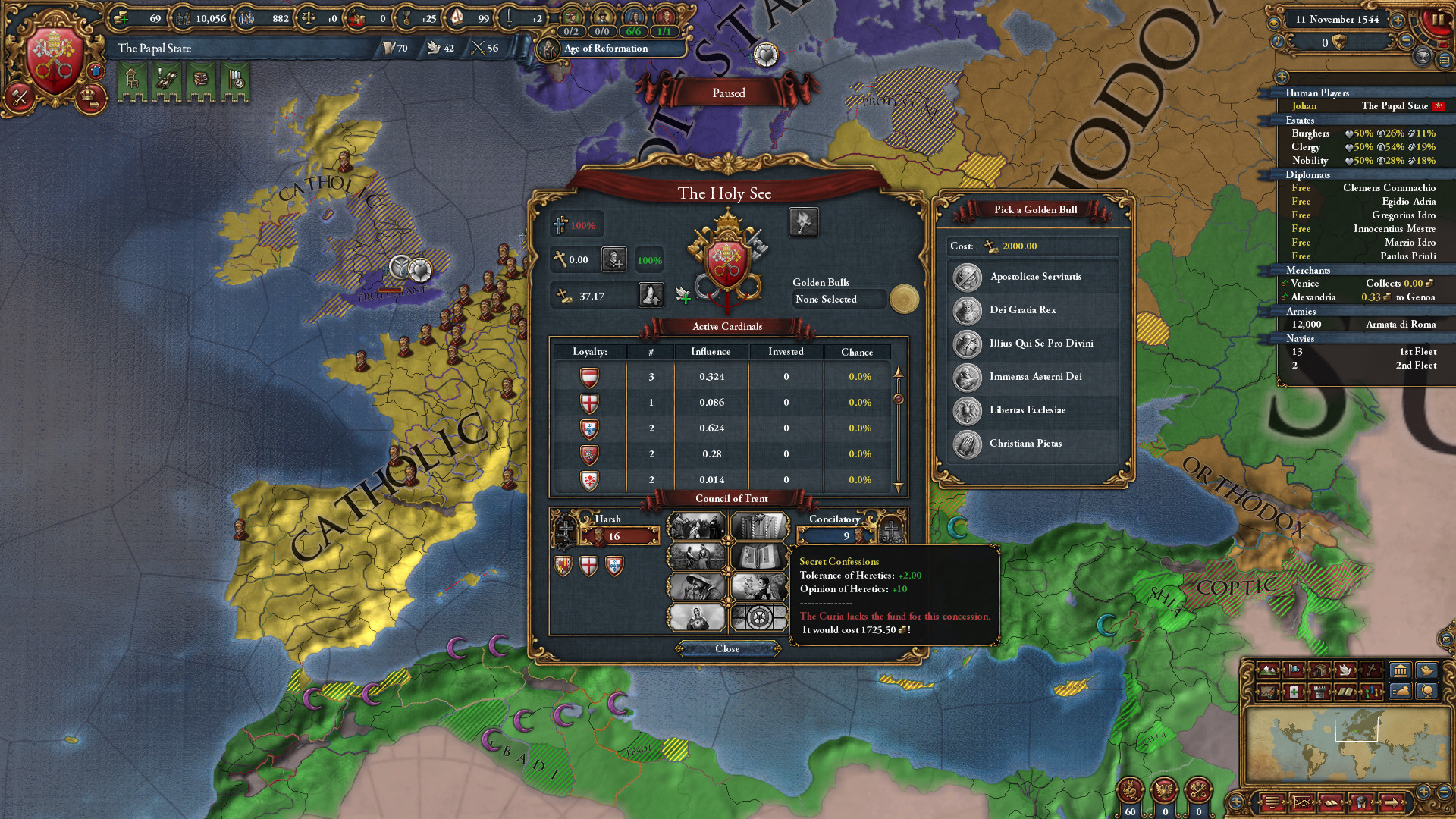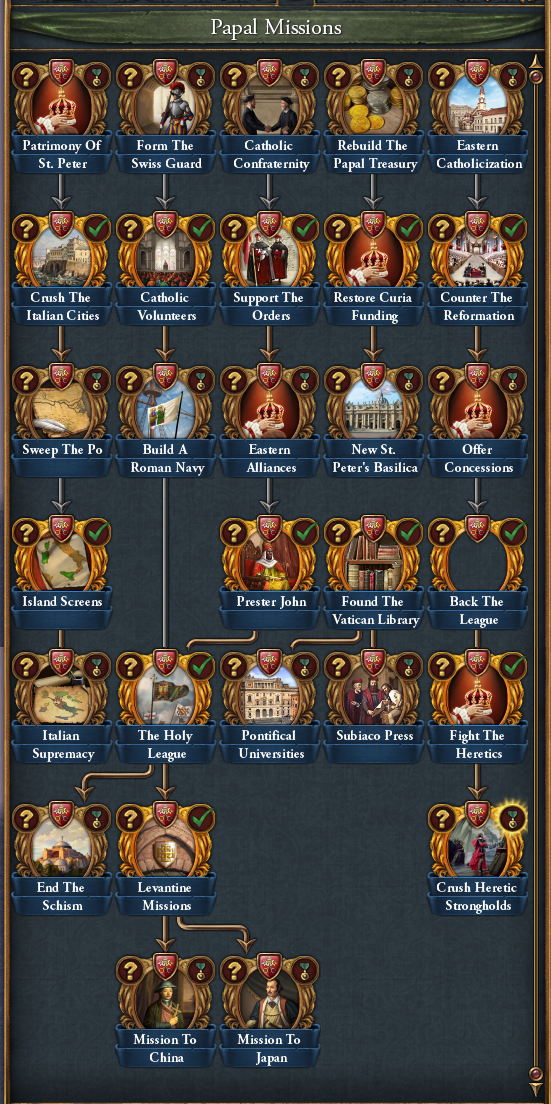Dev Diary: Governing Capacity and Industrialization
Click here to read the latest Dev Diary by Groogy
Hey everyone! Today we’ll be talking about two changes, part of the patch coming along with the Emperor expansion. You’ve probably already spotted them both if you had a keen eye on one of our streams.
First feature is part of the Governing Capacity rework and some small rework of Government Reform Progress. We’ve changed so that changing a government reform no longer causes you to gain 10 corruption, instead it costs Government Reform progress to switch on a level you’ve already picked.
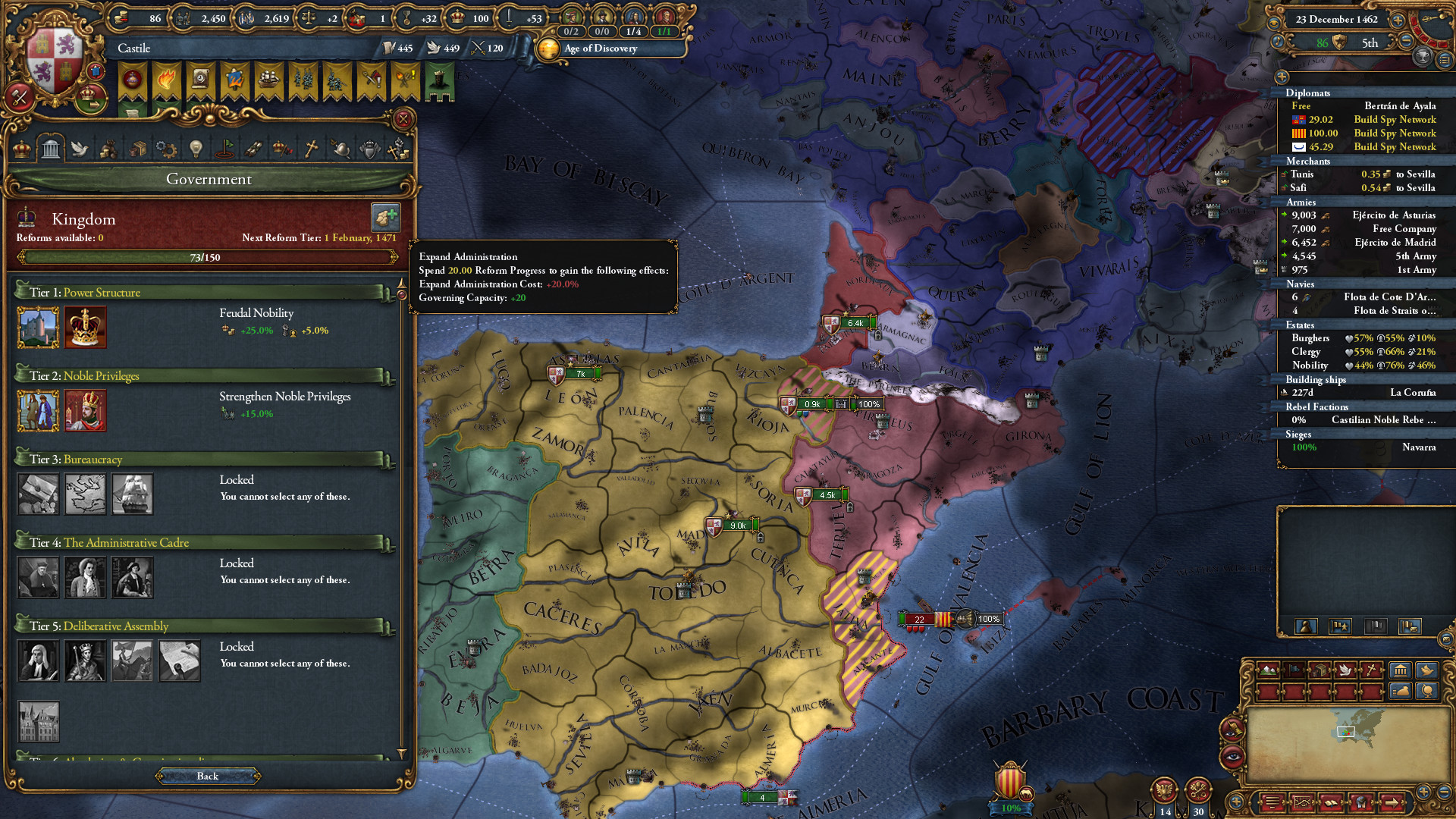
Now to the new feature that will be interacting both with Governing Capacity and the Reform Progress. The original intent with Reform Progress was that the larger your empire was, the slower you would be reforming your government and progressing through the reforms. Hence why it is affected by the autonomy of your empire as while expanding heavily your autonomy on average will be higher.
So in that spirit as well we are introducing a choice for the player to instead of reforming their government, they can expand the capabilities of their administration in order to integrate more of their conquered territories as core states. This action increases in cost every time it’s used.
This gives the player besides having to pick what land should be states, trade companies or territory, also a choice on if to advance and modernize their government or if to focus on making sure you have full control over the territory that you possess.
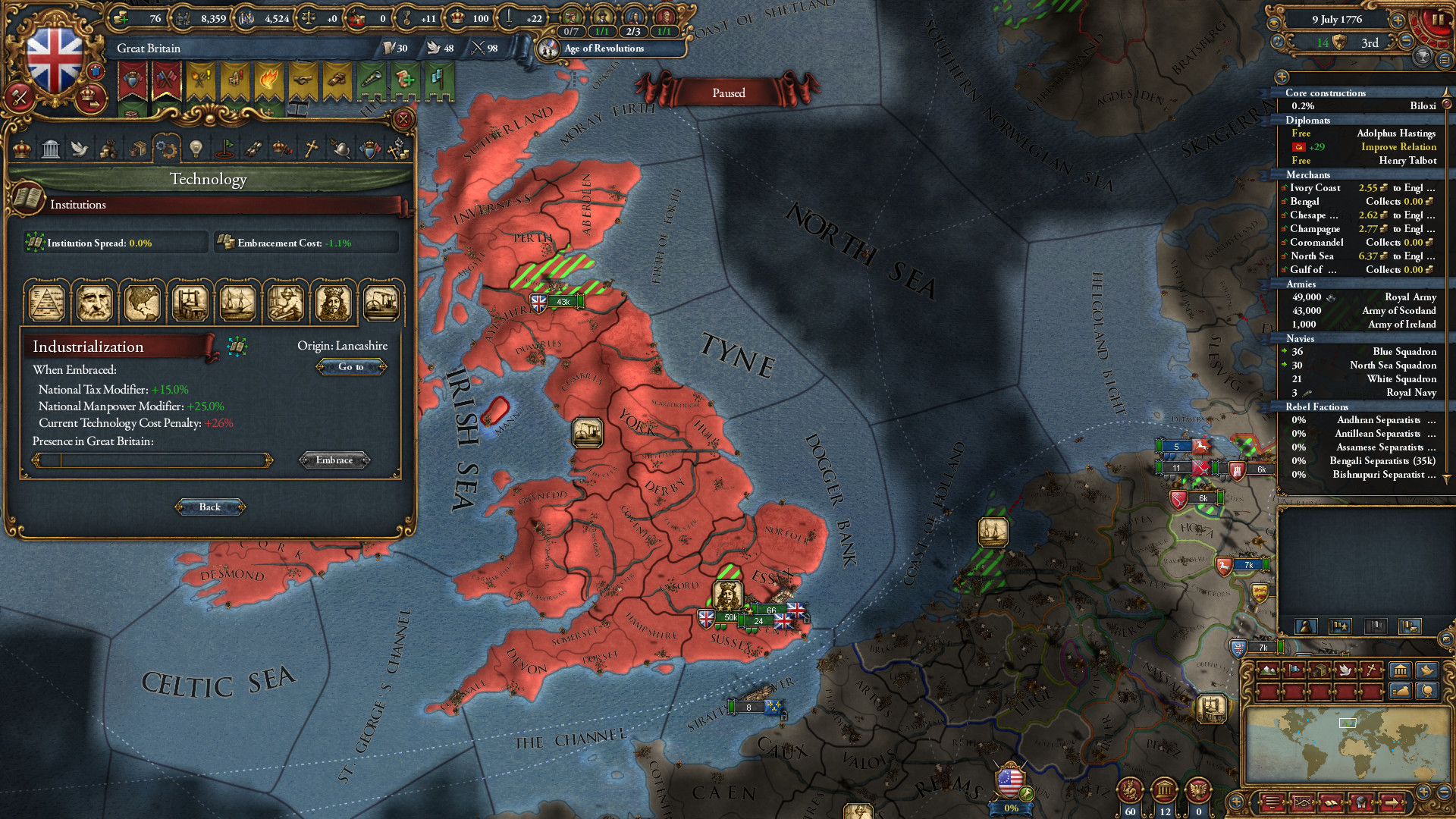
Next thing is a new institution we’ve added that is to go together with several of our late game additions we’ve been doing in this patch. We felt that you could just skip by without any technological disparity in the world for the last 80 years So we added a last institution to represent the Industrial revolution. This revolution started sometime after the 1750, as coal, steam engines saw their use increase and industries grew throughout Europe.
The requirements spawning are very much focused on the wealth from nations that have industrialized. It will spawn in any province that has 30 development, a Furnace built, the owner of the province are the leading producers of either iron, cloth or coal. If it is before 1760 it also requires that the province is in the highest trade node in the world. If the player lacks Rule Britannia, then coal and furnace requirements are replaced to focus on simply iron and cloth manufacturies.
This will give a spurt of technological advancement at the end of the game giving those who have modernized their economy an advantage.
So that’s it for this development diary, short but sweet. Next one will be written by @neondt and will be about the content regarding Imperial Diet’s such as Incidents and will be fairly more substantial.
Hey everyone! Today we’ll be talking about two changes, part of the patch coming along with the Emperor expansion. You’ve probably already spotted them both if you had a keen eye on one of our streams.
First feature is part of the Governing Capacity rework and some small rework of Government Reform Progress. We’ve changed so that changing a government reform no longer causes you to gain 10 corruption, instead it costs Government Reform progress to switch on a level you’ve already picked.

Now to the new feature that will be interacting both with Governing Capacity and the Reform Progress. The original intent with Reform Progress was that the larger your empire was, the slower you would be reforming your government and progressing through the reforms. Hence why it is affected by the autonomy of your empire as while expanding heavily your autonomy on average will be higher.
So in that spirit as well we are introducing a choice for the player to instead of reforming their government, they can expand the capabilities of their administration in order to integrate more of their conquered territories as core states. This action increases in cost every time it’s used.
This gives the player besides having to pick what land should be states, trade companies or territory, also a choice on if to advance and modernize their government or if to focus on making sure you have full control over the territory that you possess.

Next thing is a new institution we’ve added that is to go together with several of our late game additions we’ve been doing in this patch. We felt that you could just skip by without any technological disparity in the world for the last 80 years So we added a last institution to represent the Industrial revolution. This revolution started sometime after the 1750, as coal, steam engines saw their use increase and industries grew throughout Europe.
The requirements spawning are very much focused on the wealth from nations that have industrialized. It will spawn in any province that has 30 development, a Furnace built, the owner of the province are the leading producers of either iron, cloth or coal. If it is before 1760 it also requires that the province is in the highest trade node in the world. If the player lacks Rule Britannia, then coal and furnace requirements are replaced to focus on simply iron and cloth manufacturies.
This will give a spurt of technological advancement at the end of the game giving those who have modernized their economy an advantage.
So that’s it for this development diary, short but sweet. Next one will be written by @neondt and will be about the content regarding Imperial Diet’s such as Incidents and will be fairly more substantial.
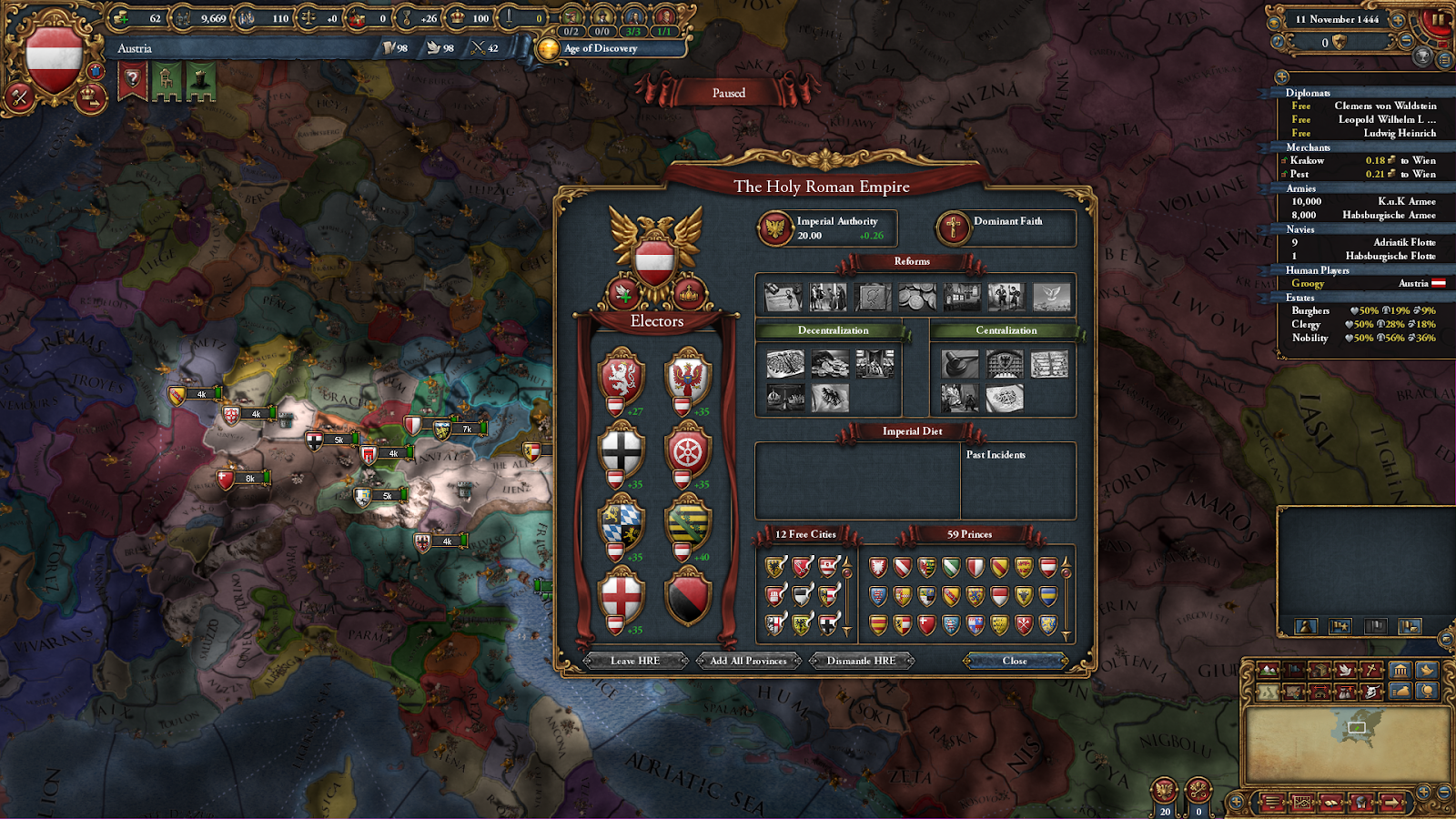
 Following is the Decentralized Reforms
Following is the Decentralized Reforms

 Investigate Heresy
Investigate Heresy